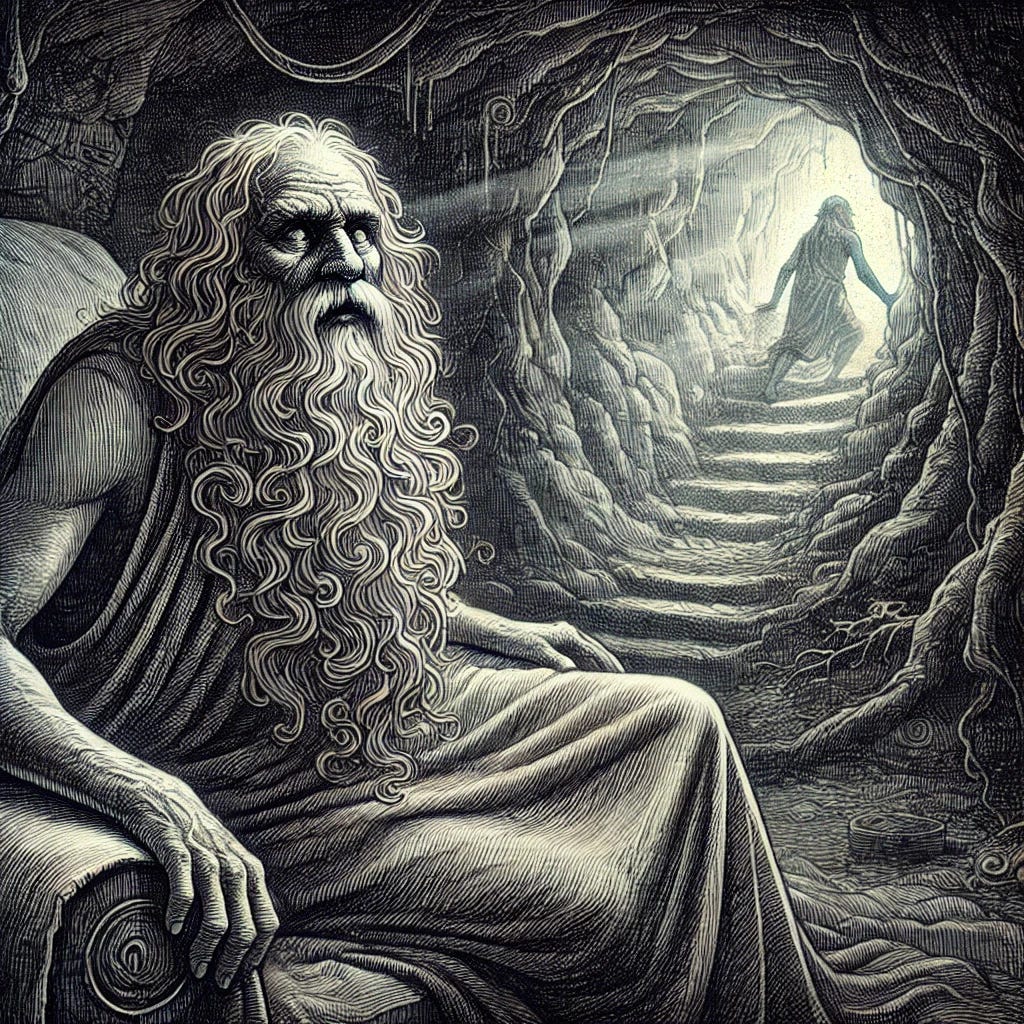2600 years ago, give or take, a fellow named Epimenides supposedly lived in Knossos, on the island of Crete. I say supposedly because Epimenides is one of those half-legendary types who may or may not have been a real person.
You’ll understand right away if you hear one or two of these tales. The most famous Epiminides story says that he once fell asleep in a cave that Zeus liked. 57 years later when he woke up, Epiminides was endowed with the gift of prophecy.
He seems to have been something like a shaman, too. After a brutal plague in Athens, he’s supposed to have purified the city with rituals and sacrifices.
Suffice it to say, our dude was perceived as close to the gods. For the ancient Greeks, who consulted the Oracle of Delphi for answers to practical questions, wisdom about the universe was in that same mystical realm. This included mathematics and logic, which seemed like puzzles far beyond mere human comprehension.
Epimenides ultimately posed one of the great thought experiments of all time, and he did it in the form of a statement. His statement goes like this:
All Cretans are liars.
Since Epimenides himself is a Cretan, what does this mean?
He’s suggesting that he himself is lying when he makes this statement. After all, if he was just implying that all Cretans lied every once in a while, that wouldn’t be particularly noteworthy.
Epimenides means that Cretans always lie, every single time.
But… if he himself lies every time he utters a statement, and he’s saying that Cretans always lie, isn’t he telling us a lie here?
Epimenides is brining some of the good stuff down from Olympus for us mere mortals to consider. He’s bringing us a delightful paradox that has gradually evolved from its original form into a more universal statement:
This statement is a lie.
Now the paradox is completely naked and right in front of us. If the statement is a lie, as it suggests, then that would make it true. Similarly, if the person reading the statement were telling the truth, then the statement would be a lie.
In other words, there is no way to resolve this paradox. It simply bends your brain around.
This type of brain-bending thinking can be useful all by itself, since you can stretch your ability to think creatively. On a personal note, I can vouch that going all the way to the edge of your thinking like this is incredibly rewarding, and I’ll often walk away with entirely new frameworks if I do enough of that.
When I was a kid, learning how to draw, I was drawn (pun intended) to these sorts of paradoxes, but my young mind needed a visual representation of the concept. Enter MC Escher, who loved doing visual representations of brain-bending puzzles and paradoxes, like these stairs that always seem to go in one direction:
These puzzles helped me to begin to understand that the world is not entirely as it seems, and our senses can’t always be trusted. I’ve been thinking about that nonstop ever since.
Did you think about puzzles like this when you were growing up? Are there other paradoxes that strike your fancy today?






My gpa gave me an Escher print book; loved it. Wish I still had it
A man walks into a tailor shop in ancient Greece with a pair of torn pants. The tailor looks at the pants and asks, “Euripides?” The man replies, “Yes. Eumenides?”
But how many cretins are liars? That...is the question. What I always found mind-bending and fascinating to think about as a kid (and now, too) is the idea of the universe being infinite. Like, how could it be that there's no end to something. But then, if there WAS an end... what's beyond that end?! Nothing? But what's nothing? Vacuum? No matter how you flip it, the answer warps your brain a bit.